This Michelin-Star Restaurant Host Went Viral For Defending Cancellation Fees (And Suggesting One Fascinating Alternative)
Whether everything you know about restaurants is from working in one, being a frequent diner, or watching The Bear, you've probably noticed that the restaurant landscape has changed quite a bit over the last few years. Gone are the days of walking into a restaurant on a busy Friday night and expecting a table immediately; in are the days of reservations made weeks or months in advance. Also in? The days of inevitable reservation fees and deposits.
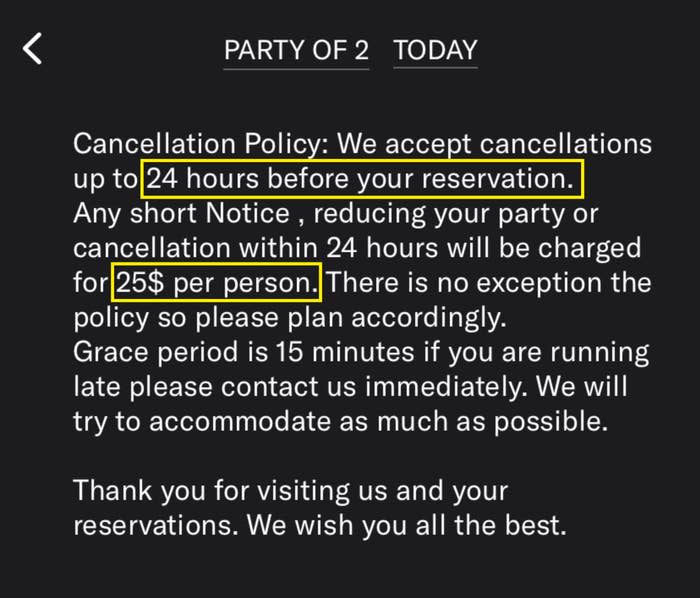
While some diners accept their fate when it comes to stricter reservation policies, others are a bit more taken aback when they're charged for last-minute cancellations. This was exactly how TikToker Rachel (@meliimelons) reacted when asked to pay a $100 fee for canceling her reservation at a New York City restaurant. On the day of her reservation, she learned that her dining companion tested positive for COVID. When she requested to move the reservation to another date without having to pay the fee, the restaurant declined.

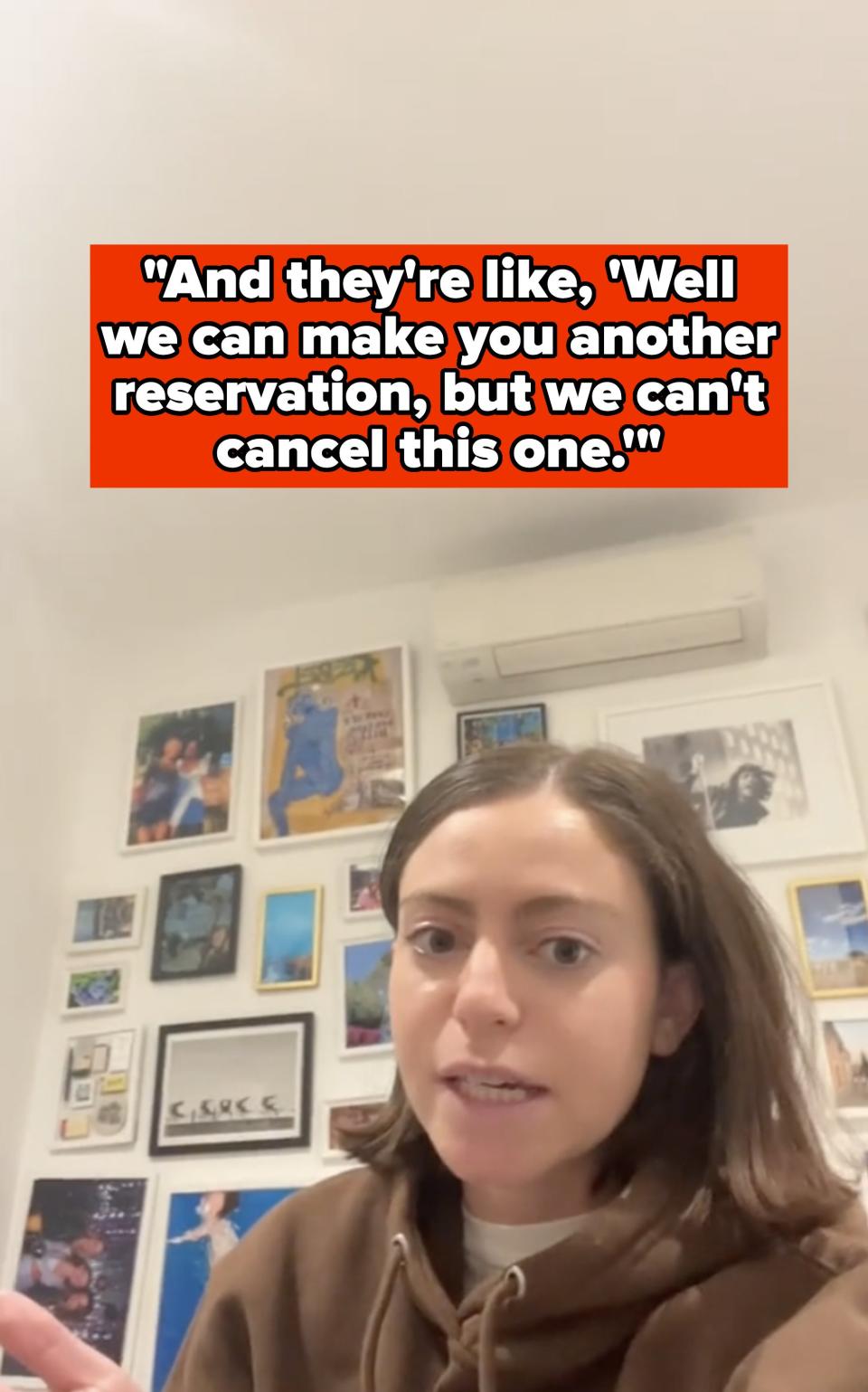
@meliimelons / Via tiktok.com
The restaurant instead told her that they could make her a new reservation, but she'd still have to pay the $50-per-person fee for canceling the one she had that night.
This prompted creator Imani (@imaniathome) to stitch that TikTok and break down exactly why these fees exist. Imani has worked as a restaurant host for eight years, many of those being for Michelin-star restaurants in Washington, DC, and her video has since grabbed 1.6 million viewers' attention.
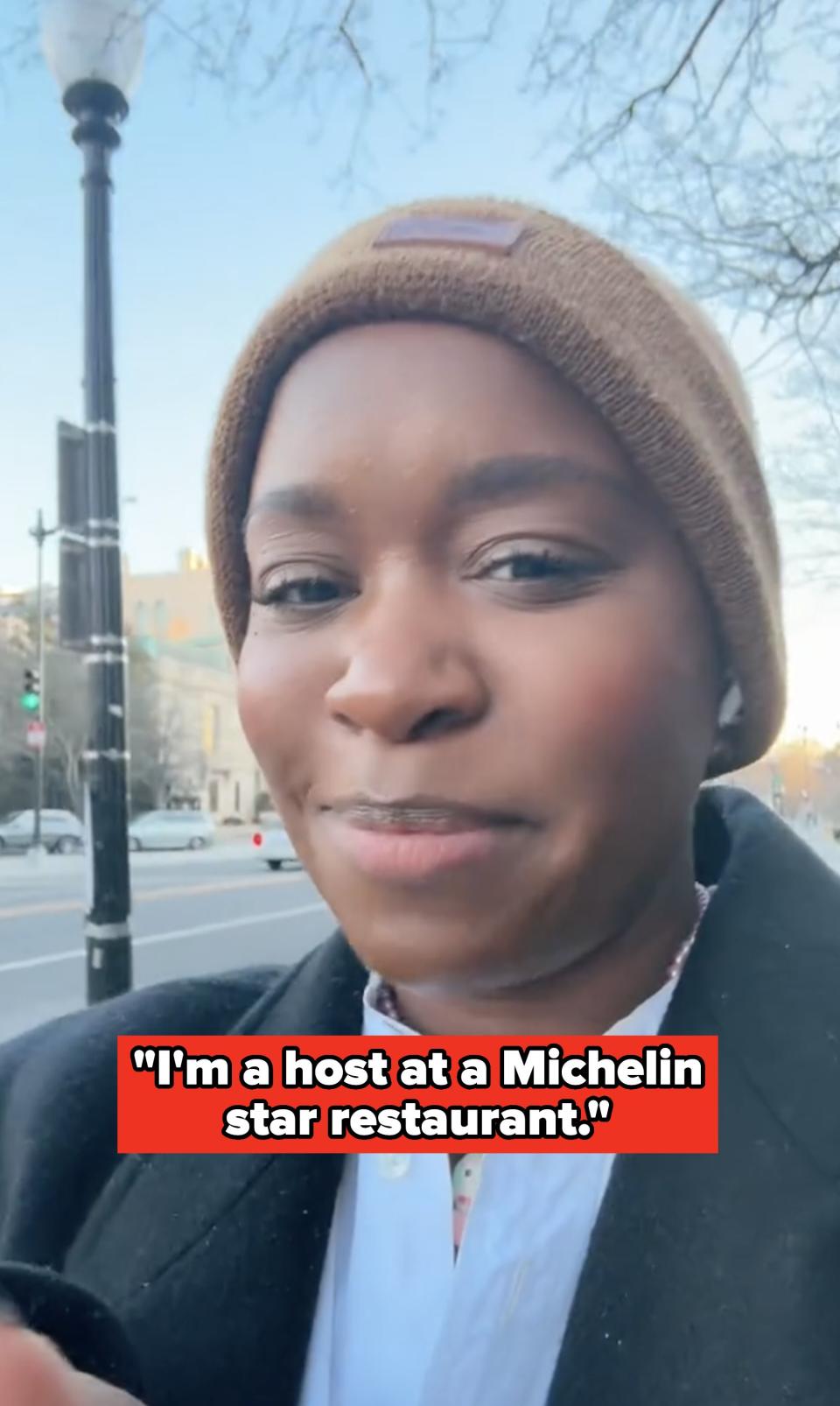
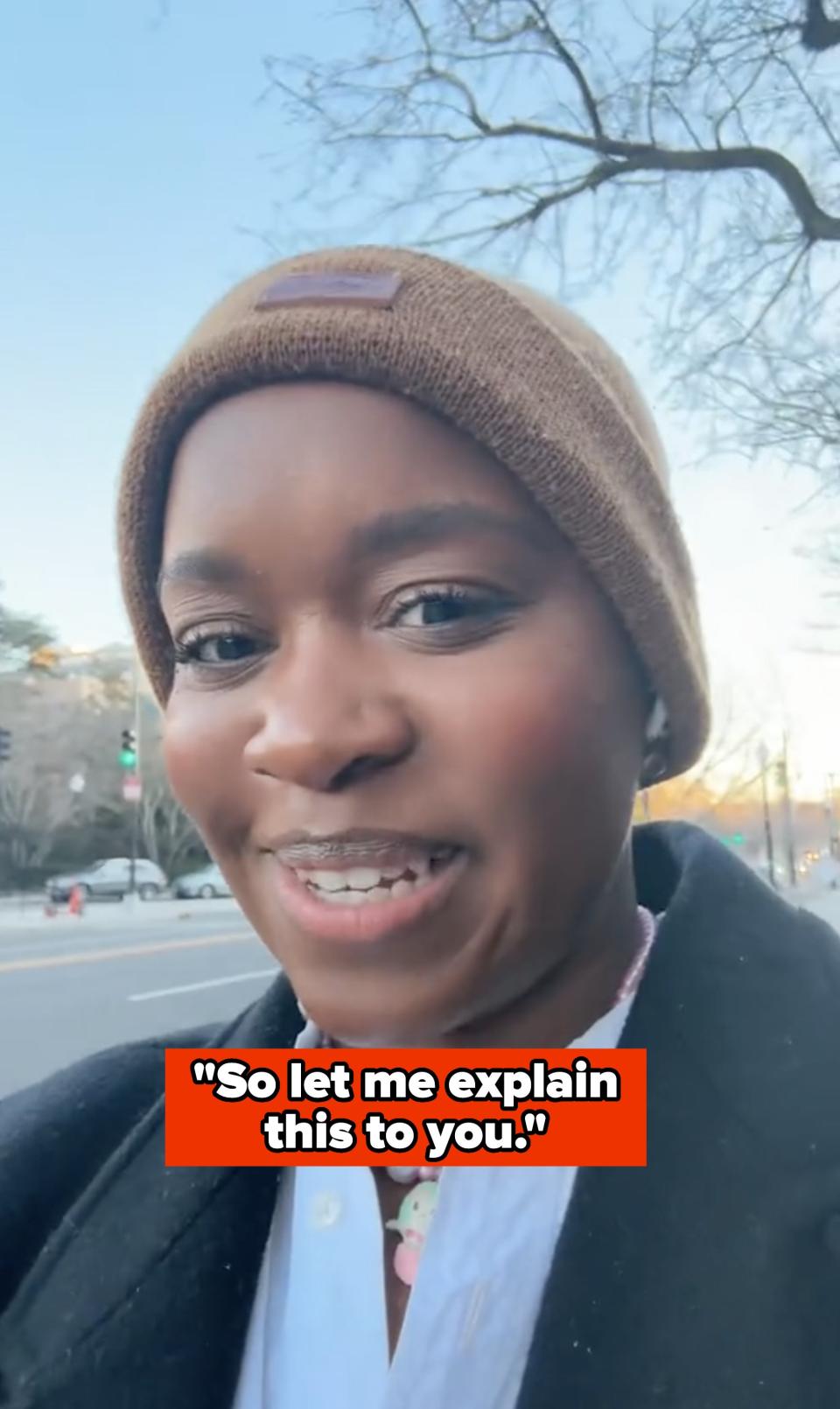
@imaniathome / Via tiktok.com
Imani goes on to dissect the whole situation: "Say, for example, your reservation is at 6 [p.m.] and the reservation behind you is at 8:15 [p.m.]. That's because you have a two-hour dinner, and there's a 15-minute buffer for the people in the restaurant to change over the tables." Imani also mentions that this is done so that servers can have enough time to finish with other tables and stagger diners, avoiding a flat seating (i.e. tables getting sat all at once).
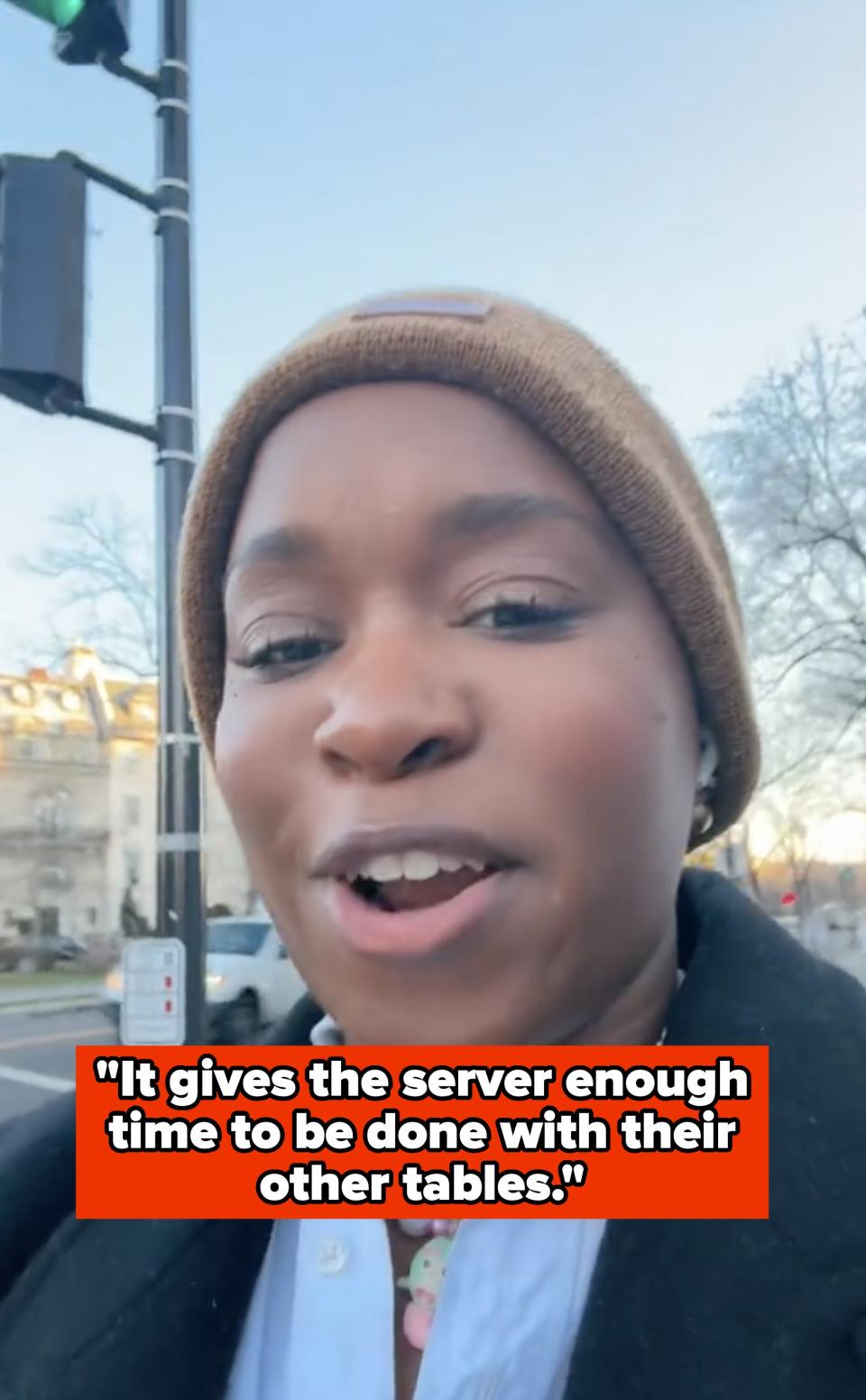
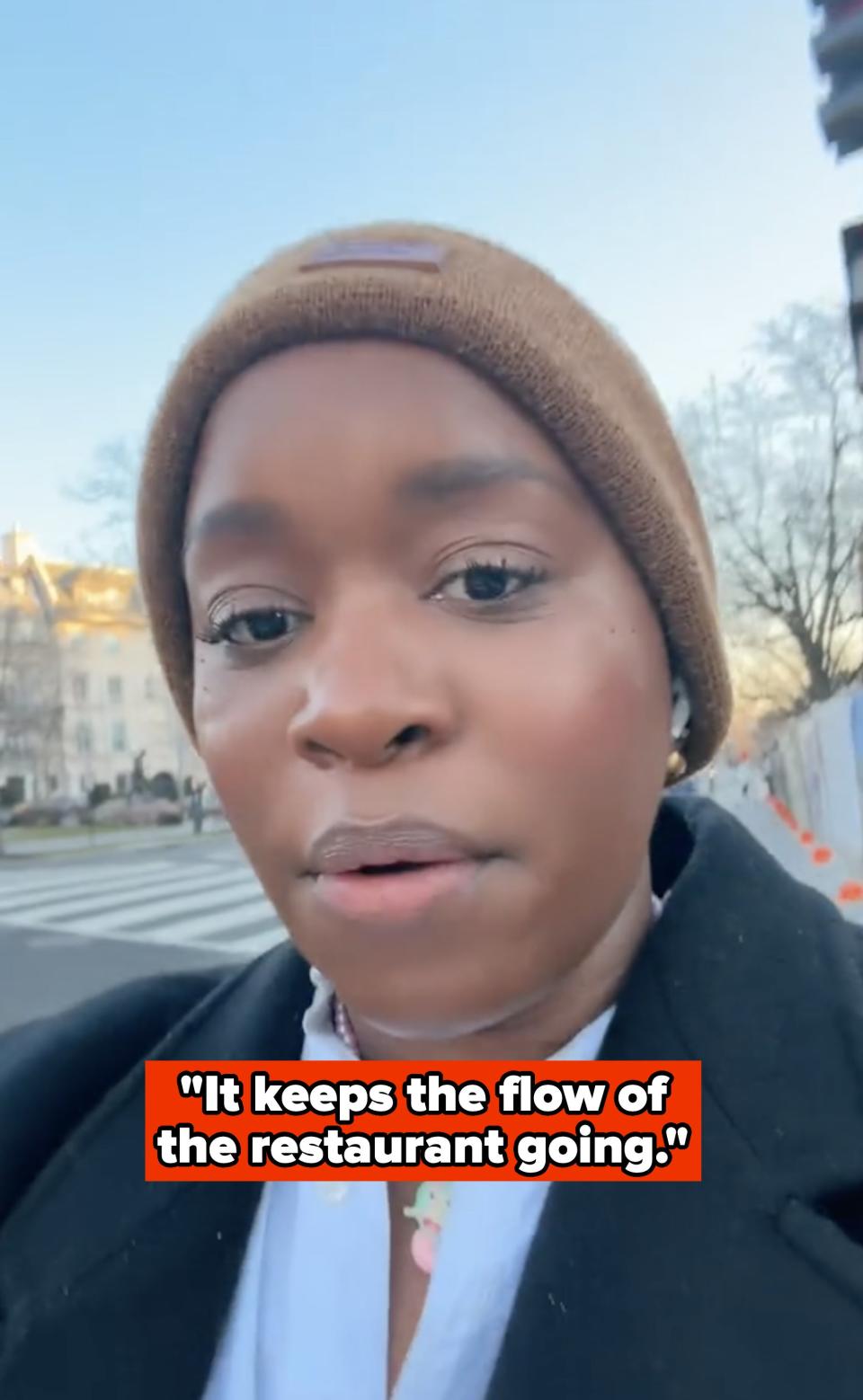
@imaniathome / Via tiktok.com
Imani continues her hypothetical scenario, "But you canceled at 6:00, obviously because your friend has COVID. Sorry about that." She then explains that the restaurant likely wouldn't have been able to fill the 6 p.m. slot, so the table probably would have had to be held open until the following reservation.
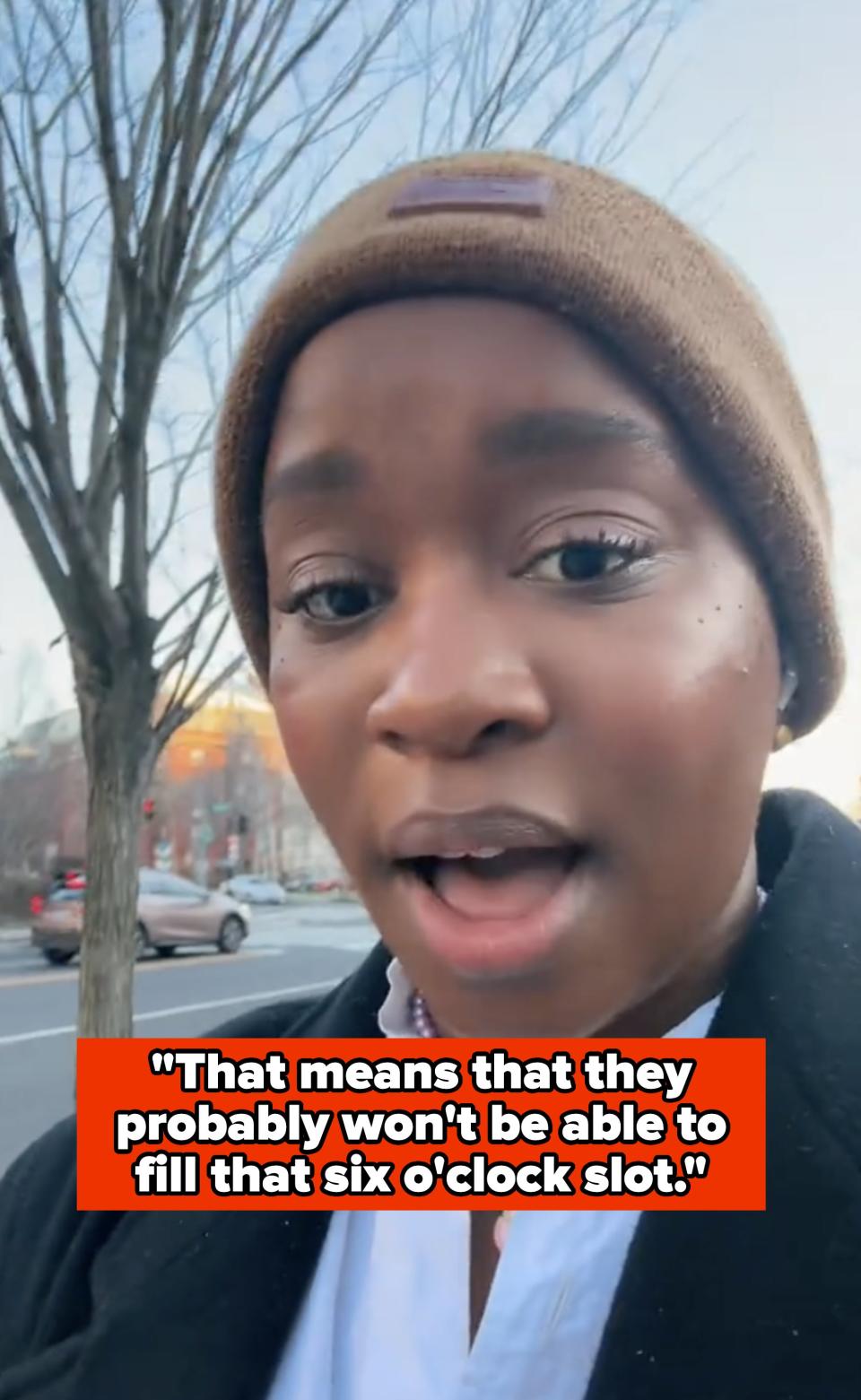
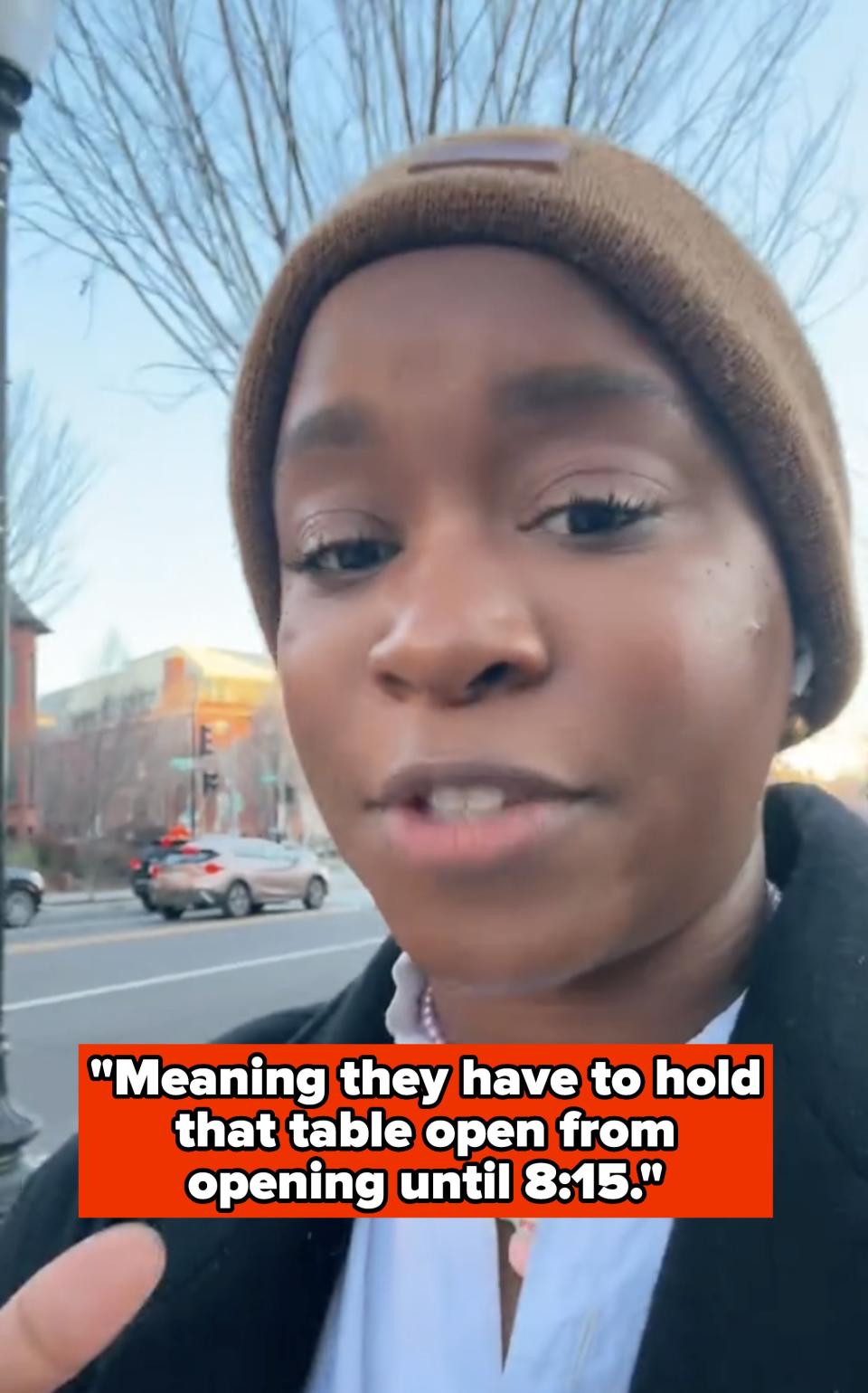
@imaniathome / Via tiktok.com
Since a lot of comments on Rachel's original video claimed that the table would get filled with a walk-in anyway, Imani further clarifies that this isn't always the case. "It's possible that somebody will walk in at 6:15, and they'll be able to slide them into that table, pray and hope that that person gets up in two hours, and they're ready for that 8:15 reservation." She explains that a customer walking in any later, say at 7 p.m., likely won't be able to be seated since there wouldn't be enough time to turn over tables.

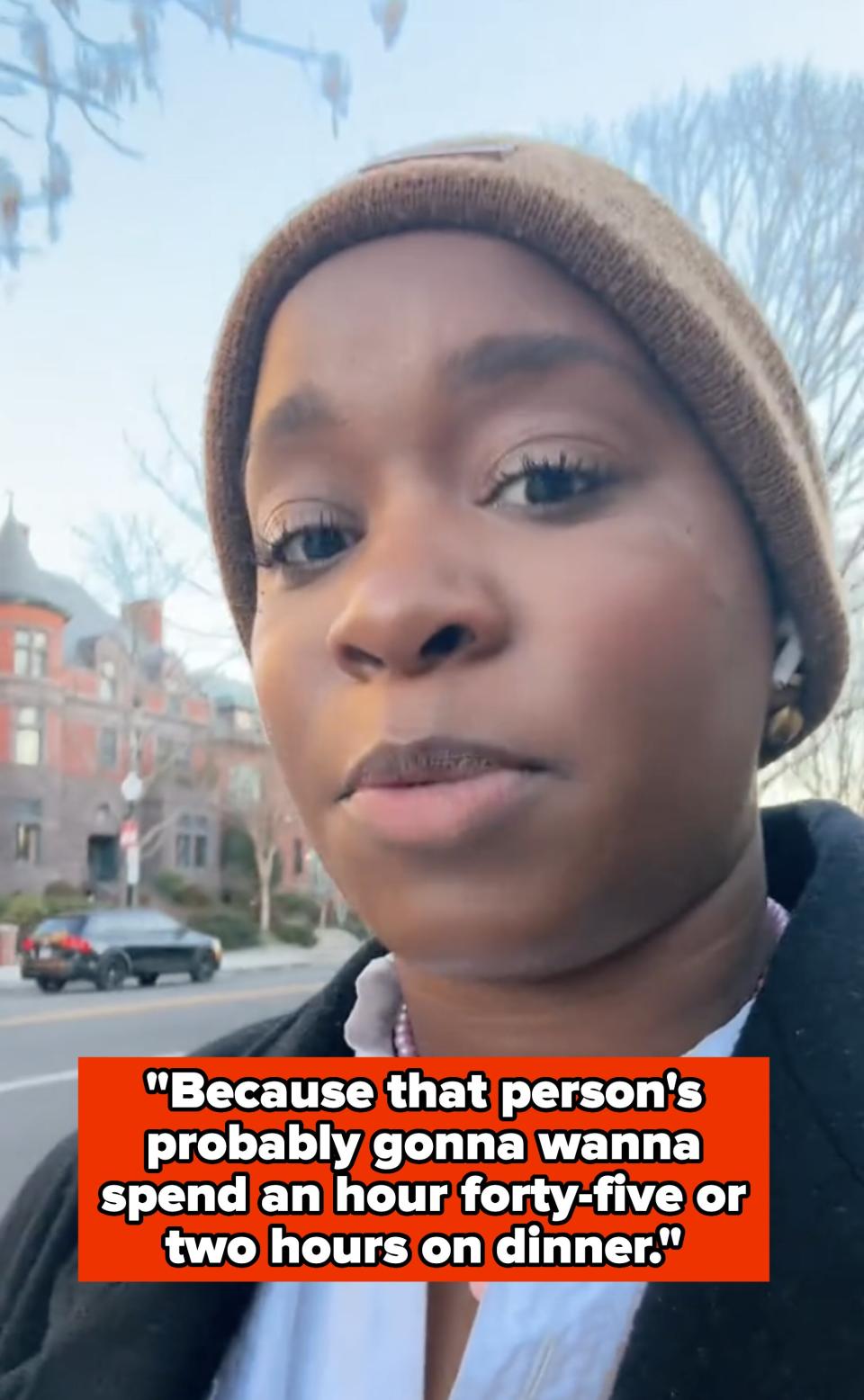
@imaniathome / Via tiktok.com
"So essentially, not only have they lost the potential of you guys eating there," Imani continues, "they also lost out on the opportunity for somebody else to sit there." Imani explains that, in her experience, anywhere from $25 to $50 per person is a "pretty normal" fee, which can help make the difference between a profitable night for a restaurant or losing money altogether.
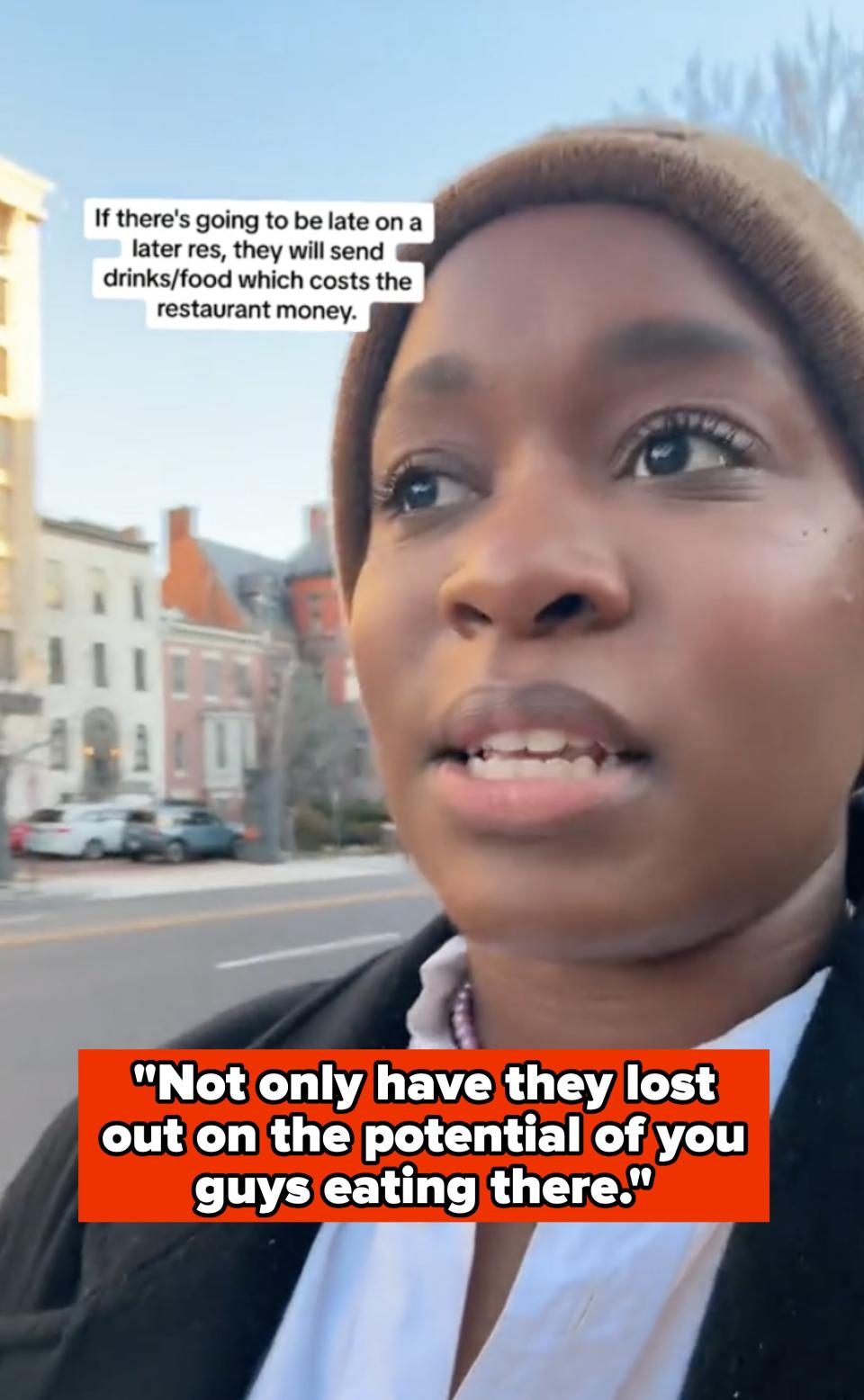
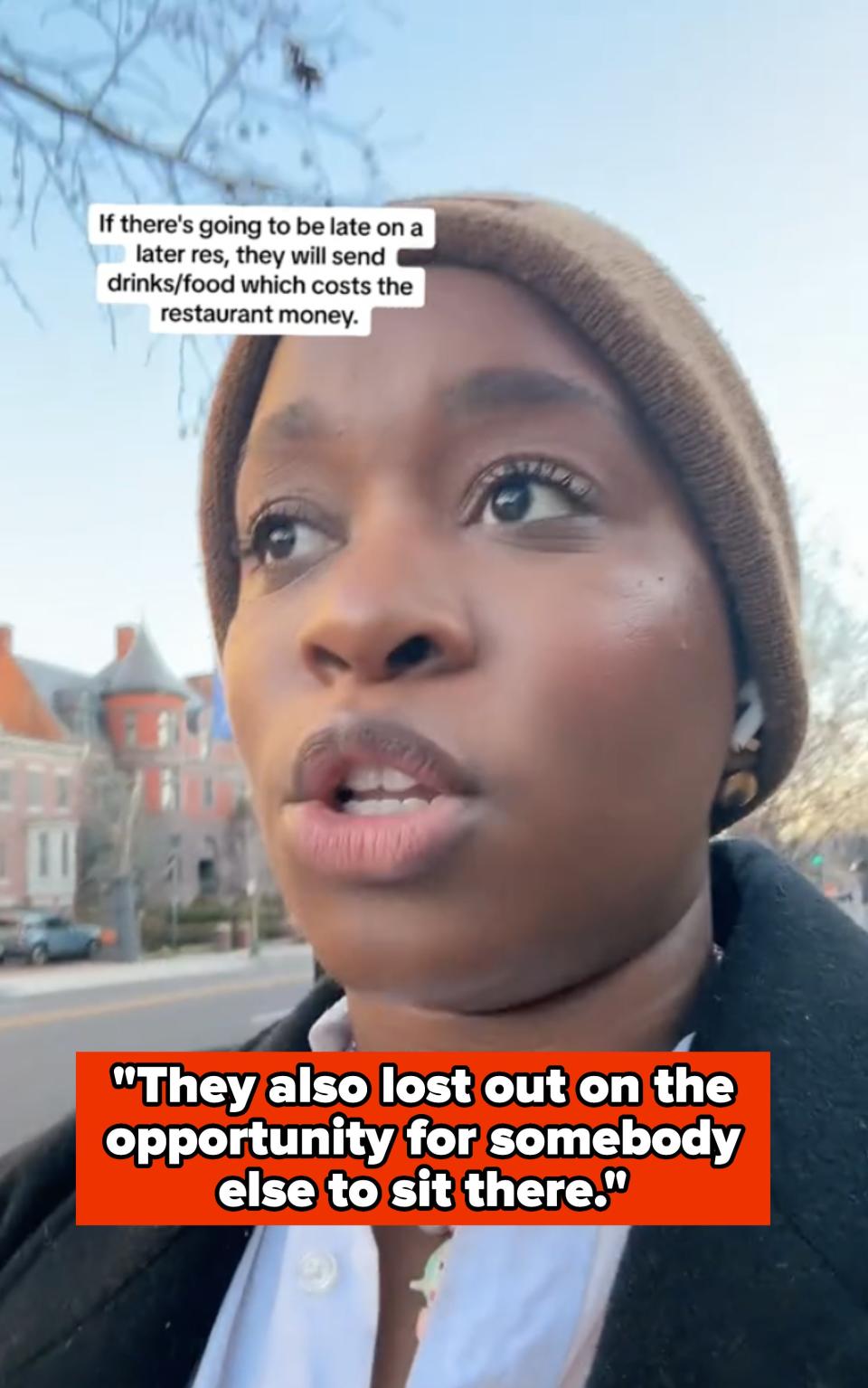
@imaniathome / Via tiktok.com
A study conducted by OpenTable found that just six people not showing up for a reservation would cause a restaurant to lose 5% of its income, which is typically its total profit margin. Imani states that this affects all of the restaurant staff, from servers to chefs to dishwashers (which we'll revisit momentarily).
Imani admits that in Rachel's case, the "honorable and equitable" thing for the restaurant to do would've been to let her cancel and agree to move the reservation. But Imani also hypothesizes that they likely didn't do that because oftentimes, a diner will cancel a reservation made for a "primetime" window. "Meaning, the restaurant and the people who work there have already been kicked in the face twice," she says in her video.
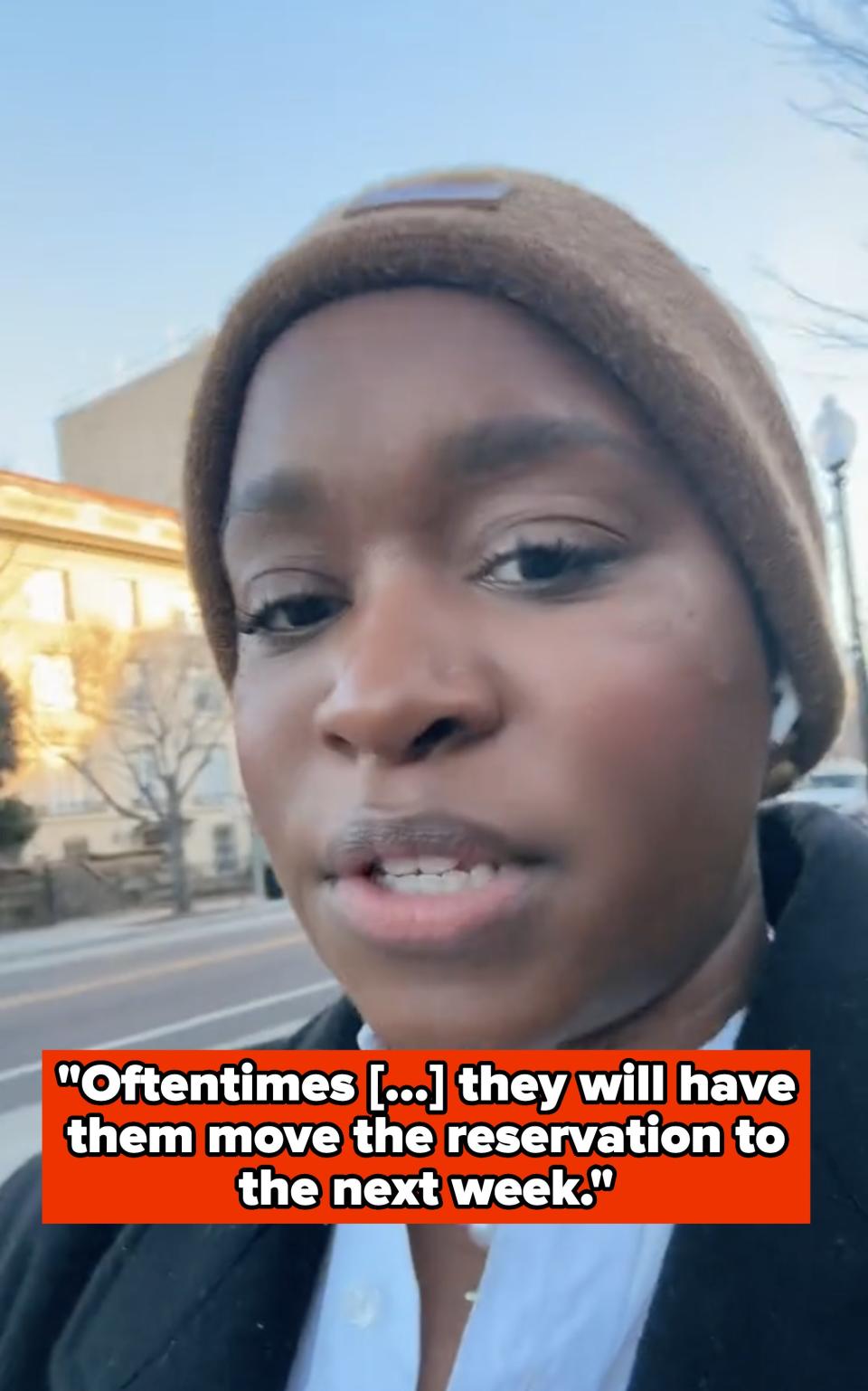

@imaniathome / Via tiktok.com
Imani says that another, more beneficial option for all parties would be to still charge the $100, but have the restaurant send it back to the customer on a gift card for when they're able to come back in. This, she explains, ensures the restaurant still makes some revenue and the customer doesn't feel as though they've completely lost out.
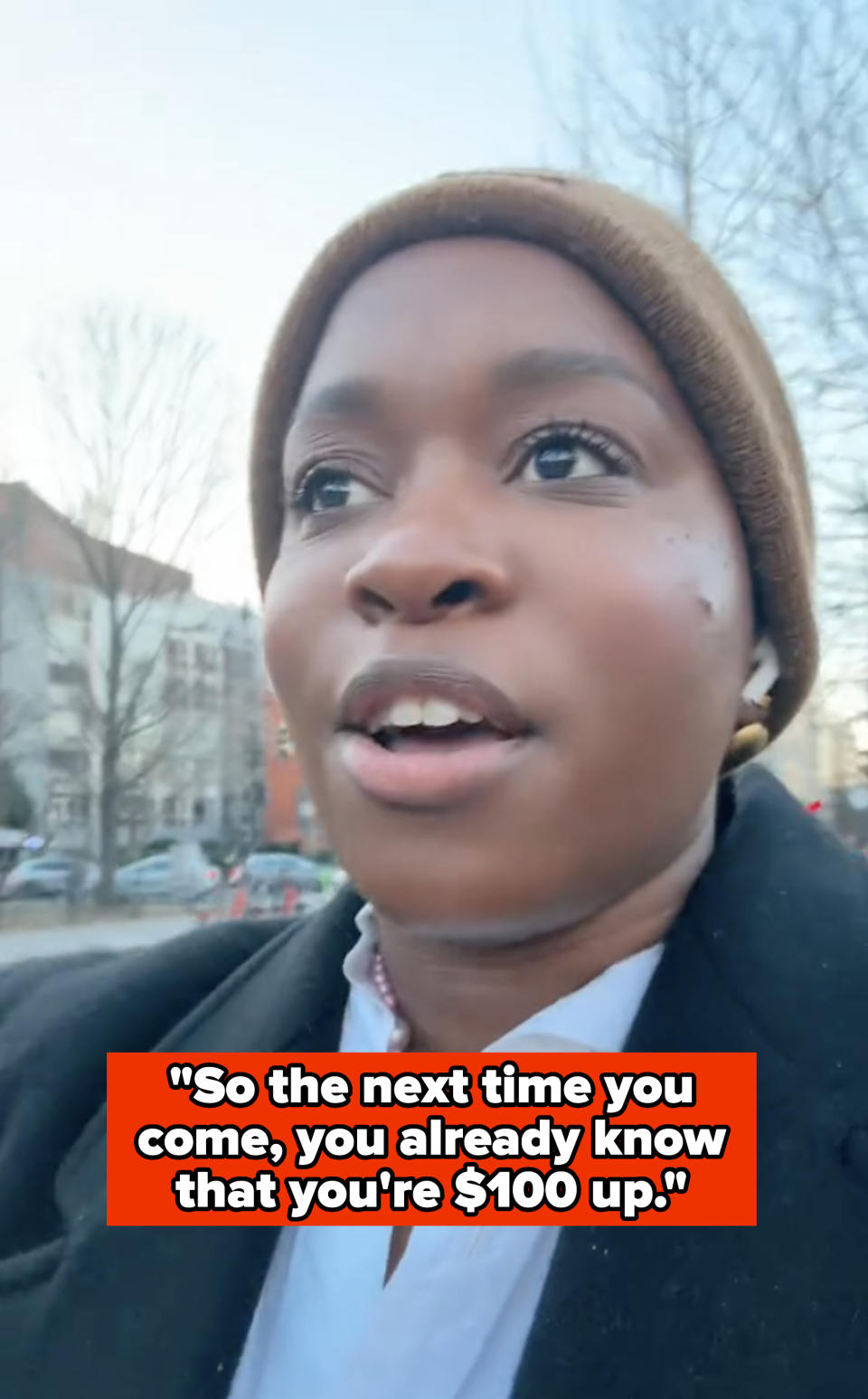
In Imani's comment section, opinions were pretty torn, with some advocating for the restaurant's (ultimately the host's) decision.
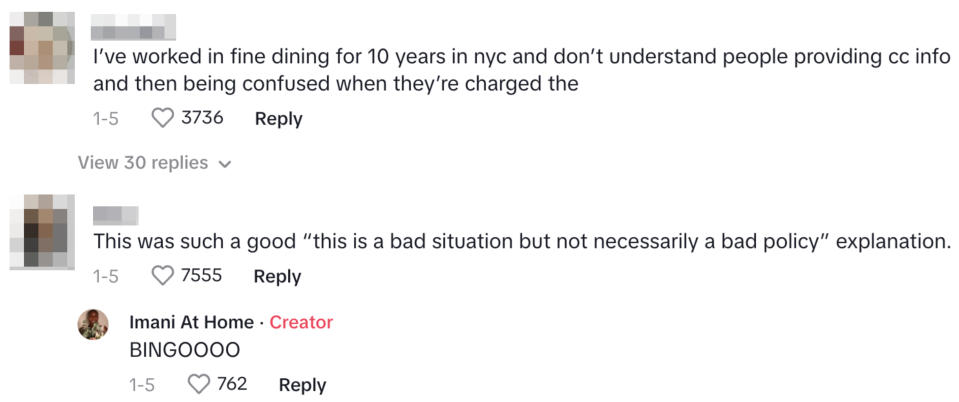
Others claimed it wasn't fair given the circumstances and part of "the cost of doing business."

When Imani stated in her video that no-shows affect staff pay, some comments also claimed that "none of the staff will see the money" from the fee. Imani clarified to BuzzFeed that the fee indirectly keeps everyone on staff afloat. "While the fee might not go directly into the server's pocket, it does go towards ensuring that the place stays open and everyone keeps a job," she explained.

"People are very unaware of how restaurants work and how hard of a job it is," Imani told BuzzFeed. "Everyone from hosts and dishwashers to servers and line cooks is giving it their all every night to ensure your birthday, anniversary, or first night out after having a baby is special, and I just want to see more respect put on the names of the incredibly talented people that work in this space."
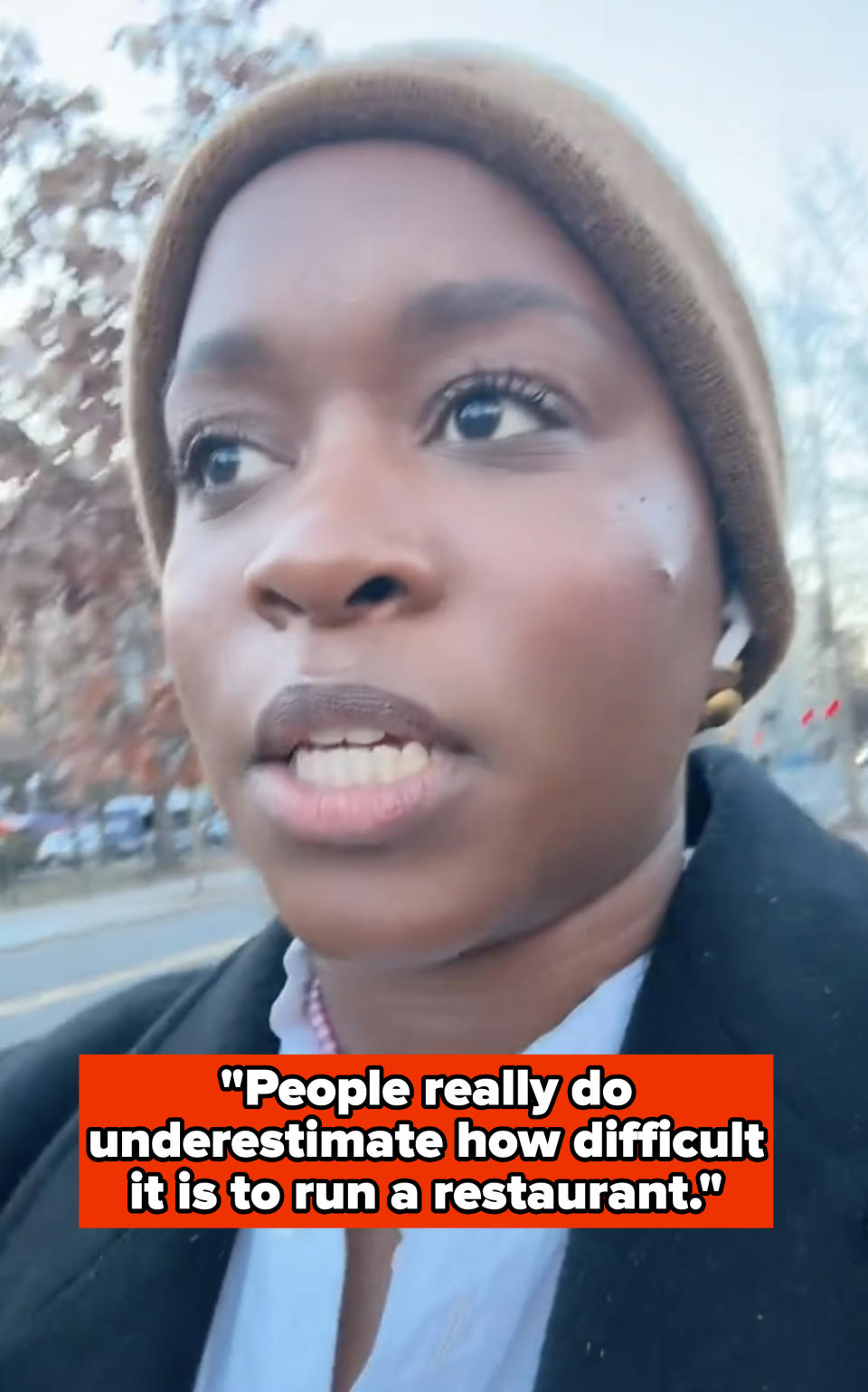
In terms of how the whole situation could've been handled differently, she believes the restaurant definitely has a part to play when it comes to training for scenarios like this, and that the host likely didn't know how to go about it and just stated the policy. On the guests' end, Imani said she has "sympathy, but also tough love," given that policies are usually clearly stated when booking through third-party reservation apps.
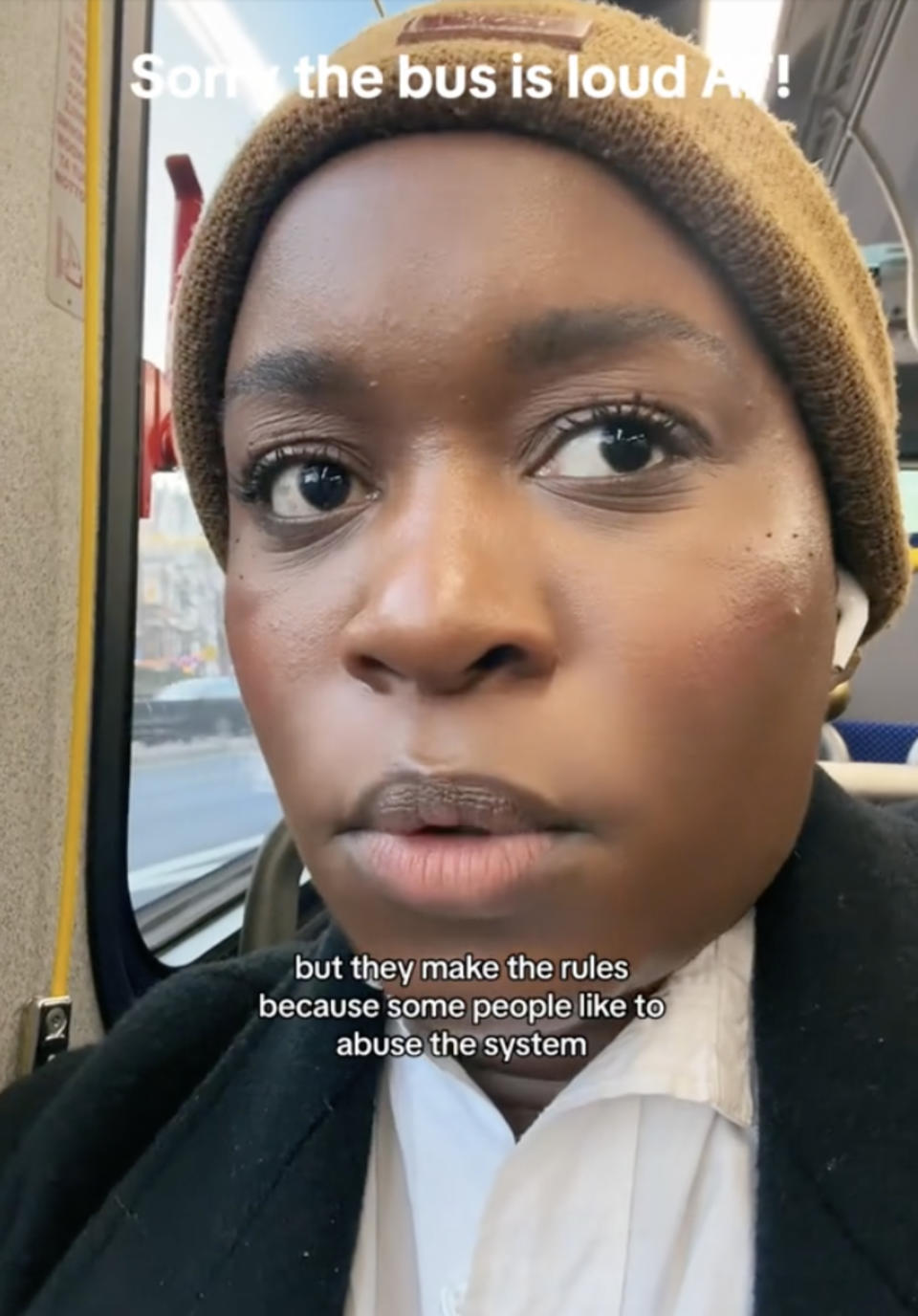
"In this specific situation, the guest could have called earlier in the day, which makes it easier to request an exception, or they could have offered the table to a friend," she explained.
The increase in popularity of third-party reservation apps, like Resy or OpenTable, has also made it easier than ever for restaurants to charge fees. Joshua Wood, who runs hospitality marketing agency CJ Digital, told BuzzFeed that before these apps became popular, "cancellation fees didn't exist, and restaurants left a lot of money on the table." He explained that they're a "necessary evil" and advises all his clients to charge a fee if someone cancels within 24 hours.
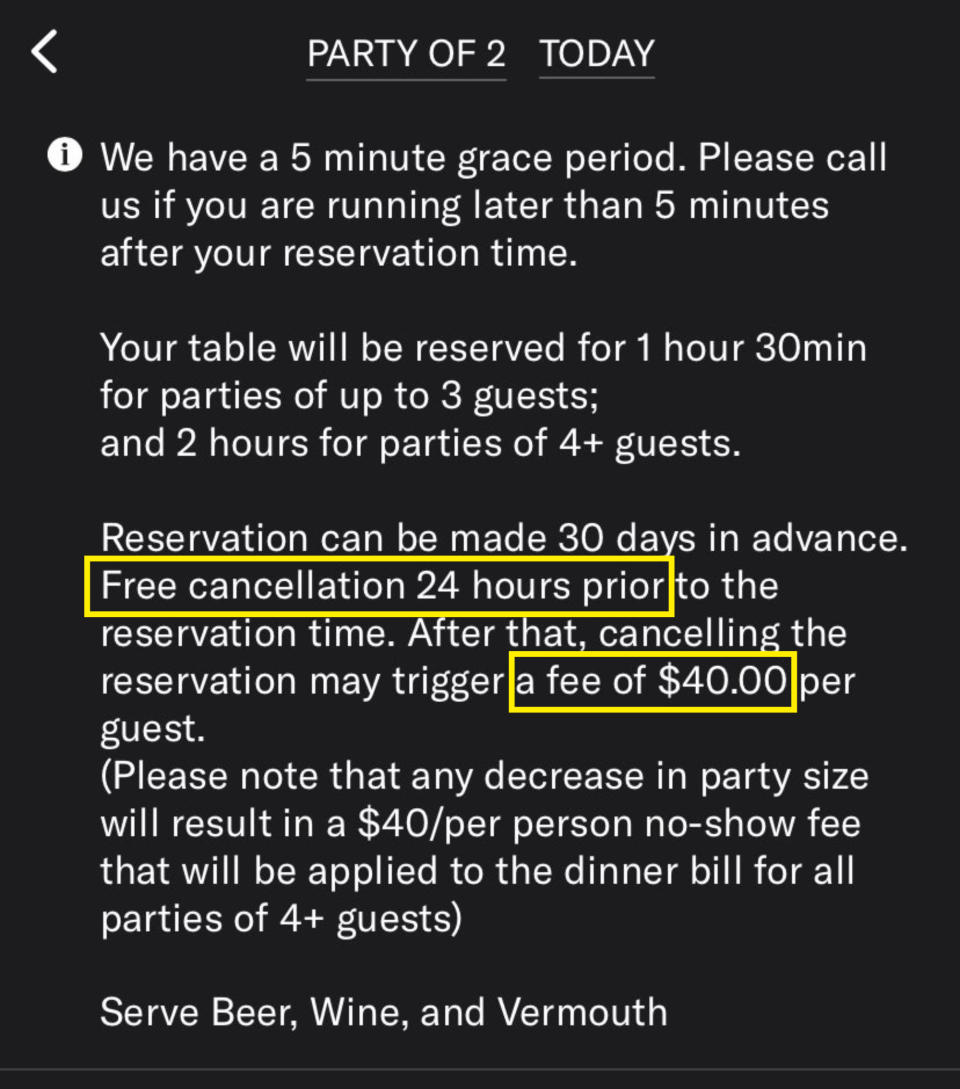
This major shift in the industry, especially in the post-pandemic years, certainly makes it seem as though these fees are here to stay. "[Profit] margins were never great in restaurants, but the pandemic really made things worse," Imani explained. "People want the sure thing of a reservation, so many restaurants have taken the hint."
We also reached out to financial consultant Michael Schmied, who agreed that cancellation fees might just be the new norm. "With the increasing unpredictability in customer behavior, especially in the postpandemic world, I foresee cancellation fees becoming more prevalent," he explained.
For Imani, it's complicated for her to say these fees should be the new standard definitively, but she understands that restaurant owners need to adapt to the current landscape. "I loved the old days where dining out — even somewhere fancy — was a bit less of a production, but I also understand why things have changed," she said. "I don't want to see any more fun POC- and independently-owned places crumble because their customer base refuses to change with the times."
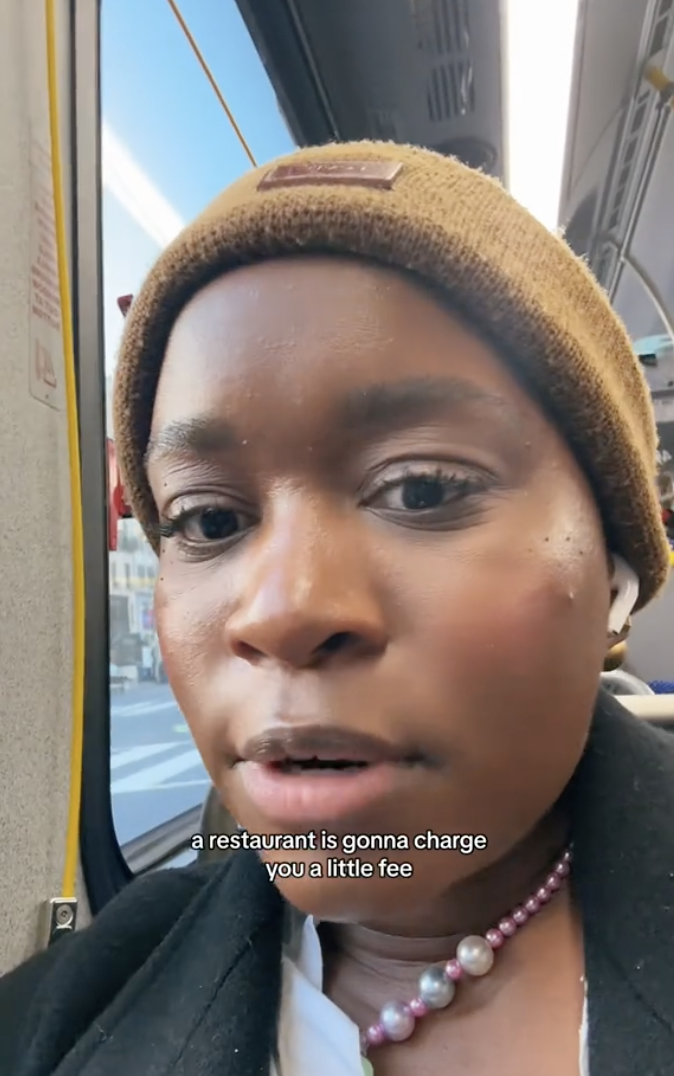
Let us know your thoughts on reservation cancelation fees in the comments below.
You can follow Imani on socials for all things home and lifestyle.

